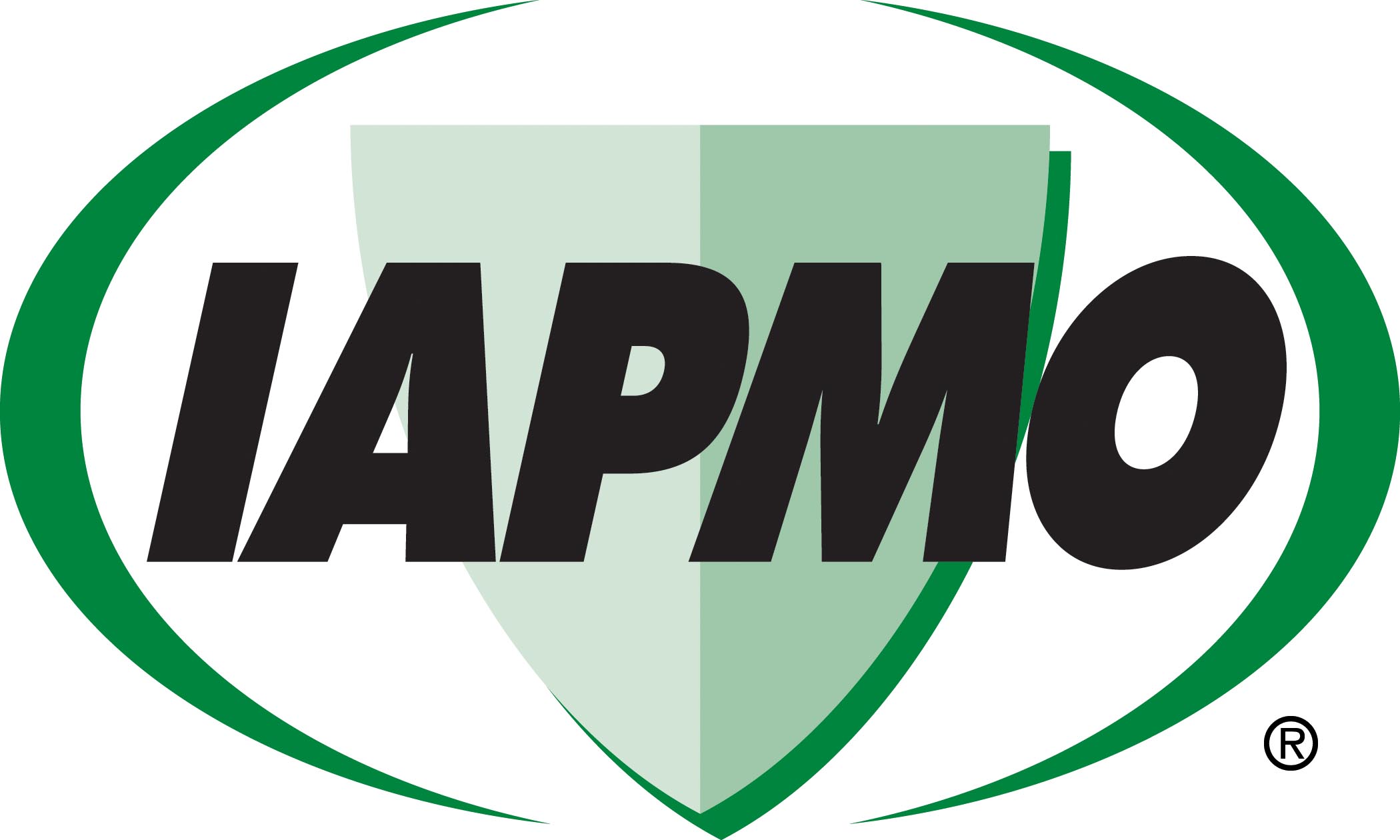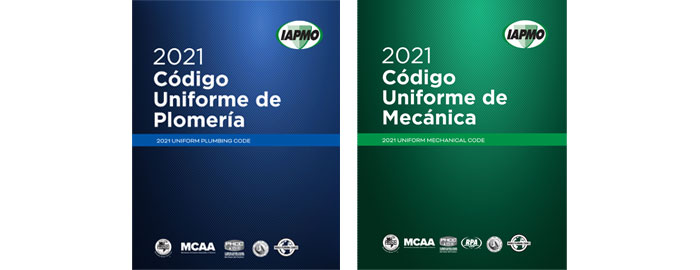The International Association of Plumbing and Mechanical Officials (IAPMO®) has published Spanish versions of the 2021 editions of the Uniform Plumbing Code (UPC®) and Uniform Mechanical Code (UMC®), available in both hardcopy and digital formats. The English versions of these codes were completed in a three‐year consensus development cycle accredited by the American National Standards Institute (ANSI).
“The UPC and UMC are the are the most utilized codes for the protection of the health and safety of the public,” said Hugo Aguilar, senior vice president of Codes and Standards. “Jurisdictions that adopt the UPC and UMC include Spanish speaking communities. Having a code that is translated into their language will be beneficial for the proper and safe installation of plumbing and mechanical systems.”
The English versions of the Uniform Codes are developed using IAPMO’s ANSI-accredited consensus development procedures. This process brings together volunteers representing a variety of viewpoints and interests to achieve consensus on plumbing and mechanical practices. The 2021 editions of the UPC and UMC mark the seventh time these codes have been developed in this manner. IAPMO urges its members and other interested parties to get involved in the process to ensure effectiveness in preserving the public’s health, safety, and welfare through fair and balanced development of its codes and standards. Installers, plumbing and mechanical officials, the construction industry, engineers, and manufacturers all benefit from a cooperative effort in developing codes.
“The Spanish terminology used was reviewed and verified by an IAPMO Spanish translation working group to verify that it is consistent with Spanish speaking professionals and communities,” said Enrique Gonzalez, manager of Codes Development. “The working group members were code users from various Spanish speaking regions who collaborated in an effort to accurately capture the translation to Spanish.”
Introduced in Los Angeles in 1928 and formally published as the Uniform Plumbing Code in 1945, the UPC is developed to govern the installation and inspection of plumbing systems as a means of promoting the public’s health, safety and welfare. Later published by IAPMO in 1967, the UMC provides the same governance for mechanical (HVAC, combustion, exhaust, refrigeration) systems. Developed and subsequently republished at the conclusion of each three-year code cycle, the UPC and UMC are designed to provide consumers with plumbing, heating, and mechanical systems that meet all applicable standards while, at the same time, allowing latitude for innovation and new technologies.
The Spanish editions of the 2021 UPC and 2021 UMC may be purchased through the IAPMO bookstore at:
UPC: https://iapmomembership.org/store/2021-codigo-uniforme-de-plomeria-electronico-ebook/1217/
UMC: https://iapmomembership.org/store/2021-codigo-uniforme-de-mecanica-electronico-ebook/1216/
Should you have any questions regarding the Uniform Codes, please contact Enrique Gonzalez at (909) 230-5535 or email at enrique.gonzalez@iapmo.org or Alma Ramos at (909) 230-5528 or email at alma.ramos@iapmo.org.

IAPMO
IAPMO develops and publishes the Uniform Plumbing Code®,the most widely recognized code of practice used by the plumbing industry worldwide; Uniform Mechanical Code®; Uniform Swimming Pool, Spa and Hot Tub Code®; and Uniform Solar Energy, Hydronics and Geothermal Code™ — the only plumbing, mechanical, solar energy and swimming pool codes designated by ANSI as American National Standards — and the Water Efficiency Standard (WE-Stand)™. IAPMO works with government, contractors, labor force, and manufacturers to produce product standards, technical manuals, personnel certification/educational programs and additional resources in order to meet the ever-evolving demands of the industry in protecting public health and safety.
Last modified: September 7, 2023

